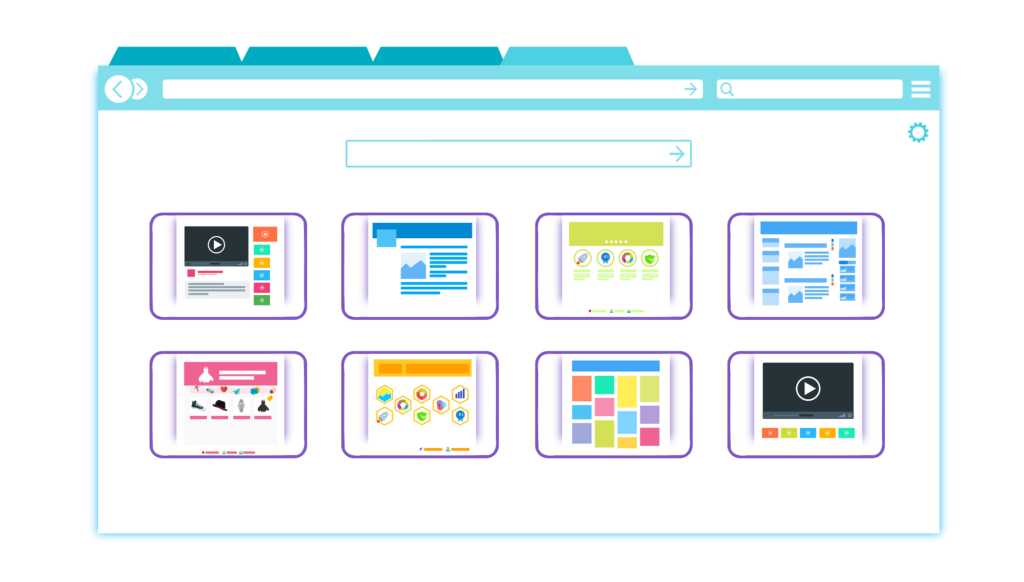In today’s digital age, your business’s online reputation can make or break you. Whether you’re a small business owner or an entrepreneur just starting out, managing your online reputation is essential to your success. 🌐 But what role does your website play in all this? 🤔 Let’s dive into how your online presence, particularly your website, is a cornerstone of online reputation management (ORM) for small businesses.
What is Online Reputation Management (ORM)? 📈
Online Reputation Management refers to the practice of shaping and maintaining the perception of your business on the internet. This involves monitoring what’s being said about your brand, addressing any negative feedback, and promoting positive content.
In essence, ORM is about taking control of the narrative around your business. 🌟 It’s about making sure that when someone Googles your business, they see the best version of your brand.
Why ORM Matters:
- First Impressions Count: Studies show that 97% of consumers look at online reviews before making a purchase. 💬
- Trust and Credibility: A strong online reputation builds trust and credibility with potential customers. 🛡️
- Business Growth: A positive online image can attract more customers and boost revenue. 💸
The Role of a Website in ORM 🌍
Your website is more than just a digital storefront; it’s the heart of your online presence. Here’s why:
a. Your Website as a First Impression 👀
When potential customers search for your business, one of the first things they’ll encounter is your website. A well-designed, professional website sets the tone for your brand and communicates credibility. 🌟
What Makes a Good First Impression:
- Clean Design: A visually appealing website with easy navigation makes a positive impact. 🎨
- Fast Loading Time: A slow website frustrates users and can lead to negative impressions. 🚀
- Mobile Optimization: With more than half of all web traffic coming from mobile devices, a mobile-friendly site is crucial. 📱
b. Providing Valuable Content 📚
Your website should be a resource hub for your audience. By offering valuable content, you can establish yourself as an authority in your industry and build trust with your audience.
Examples of Valuable Content:
- Blog Posts: Share insights, tips, and updates related to your industry. ✍️
- FAQs: Address common questions and concerns your customers may have. ❓
- Case Studies: Showcase your success stories and how you’ve helped other clients. 🏆
c. Showcasing Reviews and Testimonials ⭐
Your website is the perfect place to highlight positive reviews and testimonials from satisfied customers. This not only boosts your credibility but also reassures potential clients that they can trust you.
How to Showcase Reviews:
- Dedicated Testimonials Page: Create a page solely for customer testimonials. 🗣️
- Home Page Feature: Highlight top reviews on your homepage. 🏠
- Case Studies: Include reviews within case studies to provide context. 📄
d. Controlling the Narrative 📝
Your website allows you to control the narrative around your brand. Unlike social media or review sites, where anyone can post anything, your website is your space to tell your story the way you want it to be told.
Key Ways to Control the Narrative:
- About Us Page: Share your brand’s mission, values, and history. 🏢
- Blog Content: Regularly update your blog with content that reflects your brand’s voice and message. 📰
- Press Releases: Publish company news and updates directly on your site. 📰
How to Use Your Website for Effective ORM 🌟
a. Monitor and Respond to Feedback 🛠️
While your website is your turf, it’s still important to monitor and respond to feedback that might affect your online reputation.
Tips for Monitoring Feedback:
- Use Google Alerts: Set up alerts for your business name to track mentions online. 📧
- Respond Promptly: Address any negative feedback or comments quickly and professionally. ⏰
- Encourage Positive Reviews: Ask satisfied customers to leave positive reviews on your site and other platforms. 🙌
b. Create and Optimize Local Listings 📍
For small businesses, local SEO is a critical component of ORM. Ensure that your website is optimized for local searches to attract customers in your area.
How to Optimize Local Listings:
- Add Location Pages: Create pages dedicated to your business locations with relevant keywords. 🗺️
- Claim Your Google My Business Listing: Make sure your Google My Business listing is up-to-date and linked to your website. 🔗
- Get Listed on Local Directories: List your business on local directories and include links back to your site. 📚
c. Regularly Update Your Website 🆕
A stagnant website can give the impression that your business is outdated. Regular updates show that your business is active and engaged.
Ways to Keep Your Website Updated:
- Post Regular Blogs: Aim for at least one new blog post per month. 🖊️
- Update Testimonials: Add new testimonials and reviews as you receive them. 🆕
- Refresh Content: Update old content to reflect new trends or changes in your industry. 🔄
d. Enhance User Experience (UX) 🚀
A positive user experience on your website can greatly enhance your online reputation. Ensure your website is user-friendly and provides a seamless experience.
Key UX Enhancements:
- Intuitive Navigation: Make it easy for users to find what they’re looking for. 🧭
- Fast Load Times: Optimize images and scripts to improve page speed. 🏃
- Clear CTAs: Guide users with clear calls to action. 📣
Leveraging SEO for Online Reputation Management 🔍
Search Engine Optimization (SEO) plays a crucial role in ORM. By optimizing your website for search engines, you can control what appears in search results for your brand.
a. Targeting Branded Keywords 🏷️
Ensure that your website ranks for branded keywords (e.g., your business name + reviews). This way, when someone searches for your brand, they’re more likely to find your official site rather than third-party reviews.
b. Creating High-Quality Content 📄
Consistently publishing high-quality, keyword-optimized content can help push down negative results in search rankings. Focus on content that provides value and answers common customer queries.
c. Building Backlinks 🔗
Backlinks from reputable sites boost your SEO and, by extension, your online reputation. Reach out to industry blogs, news sites, and local directories for link-building opportunities.
Managing Negative Online Content 🛡️
No matter how great your business is, you may encounter negative content online. Here’s how your website can help mitigate its impact.
a. Responding to Negative Reviews 😬
Addressing negative reviews on your site shows that you care about your customers’ experiences. Be professional, empathetic, and solution-oriented in your responses.
b. Creating Positive Content 😊
Overwhelm negative content with positive stories, testimonials, and case studies. Regularly publishing positive content can help push negative mentions further down in search results.
c. Offering a Resolution Page 📝
If there’s a recurring issue with your product or service, consider creating a dedicated page that addresses the problem and offers solutions. This proactive approach shows that you’re committed to customer satisfaction.
Integrating Social Media with Your Website 📲
Social media is another critical component of ORM. Integrating your social media presence with your website can amplify your efforts.
a. Social Media Feeds on Your Website 🧩
By embedding social media feeds on your website, you can showcase the latest updates, promotions, and customer interactions. This also keeps your site content fresh and engaging.
b. Encourage Social Sharing 🔄
Add social sharing buttons to your blog posts and other content to make it easy for visitors to share your content with their networks. This increases your content’s reach and visibility.
c. Consistent Branding Across Platforms 🎨
Ensure that your branding is consistent across your website and social media profiles. This builds trust and makes your business more recognizable.
Case Study: Successful ORM Through a Website 🏆
Let’s look at a hypothetical case study of a small pet grooming business, “Happy Paws,” to illustrate the importance of a website in ORM.
Challenge:
“Happy Paws” noticed that a few negative reviews were affecting their online reputation. Potential customers were being deterred by the negative comments they found online.
Solution:
- Website Redesign: Happy Paws revamped its website with a clean design, easy navigation, and mobile optimization.
- Testimonials Page: They added a testimonials page featuring glowing reviews from happy customers.
- SEO Optimization: They optimized their website for branded keywords and published new blog content regularly.
- Negative Review Response: They created a blog post addressing common concerns mentioned in negative reviews and offered solutions.
- Social Media Integration: Happy Paws embedded their Instagram feed on their homepage to showcase recent happy customers and pets.
Result:
Within six months, Happy Paws saw a significant improvement in their online reputation. Their website became the top search result for their business name, and the new testimonials page helped to build trust with potential customers. Traffic to their site increased by 40%, and their conversion rate improved by 25%.
Wrap Up: Your Website is the Heart of ORM ❤️
For small businesses, online reputation management is not just an option; it’s a necessity. And your website is at the heart of it all. From shaping the first impression to providing valuable content, showcasing testimonials, and controlling the narrative, your website plays a pivotal role in building and maintaining a positive online reputation.
Investing in your website isn’t just about aesthetics; it’s about building a trustworthy, credible, and authoritative online presence. 🌟 So, take charge of your ORM strategy today, starting with your website. After all, in the digital world, your reputation is everything.
Ready to improve your online reputation? 🚀 Start by enhancing your website today! Contact us at info@appmakerszone.com for your brand-new website.





